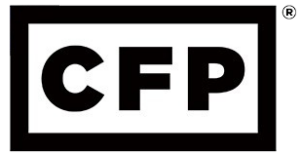Identify high school curriculum that will sparkle on your college application
Want to go into the medical field? You’ll need plenty of science courses. Architecture? Focus on acing your math and design classes. Better yet, see if your high school offers AP or college credit level classes in these areas. It’s easy to make scheduling choices based on a preferred study hall or lunch period, but being strategic about high-school level coursework can have some real pay-offs while applying to college.
Discuss the criteria involved in the college search process
- Location
- Extracurricular activities
- Size
- Co-ed/single sex
- Academic programs
- Support and faith based services
- Ensuring your child feels comfortable and their opinion is considered
- Cost
- Campus environment
- Study abroad
- Internship programs
- Learning accommodations that help a student transition off a high school IEP
- Options to easily pursue advanced degrees (MBA/masters)
Determine what’s considered in the application process
You may be very surprised to realize grades aren’t all colleges care about. Colleges want to know your child’s aspirations and how they’ve pursued them. Craft a story about your child and showcase all the ways they’ve spent their non-academic hours to support the narrative.
- High school transcripts
- Standardized testing scores (thankfully these are becoming less important…)
- Personal statement
- Extracurricular and volunteer activities
- Special talents
- Work and entrepreneurial endeavors
- Letters of Recommendations
- Early Decision
- Early Action
- Early Action-Single Choice
- Regular Decision
- Rolling Admission
Admission Applications
- Paper vs online applications
- The Common App
- School-specific applications
Explore the types of financial aid available and the forms necessary to apply for it
You may find out that the school you’re applying to doesn’t offer certain types of aid. A popular example is that none of the Ivy League schools and close competitors offer merit or athletic based aid. Let’s face it, all their students are brilliant and talented! The focus for them is providing needs-based aid. Make sure you’re playing to the right audience when you consider your financial situation and where your grades/abilities/talents may be most rewarded.
- Needs Based Aid
- Merit Based Aid
- Scholarships (needs, merit, extracurricular, community, membership)
Financial Aid Applications
- FAFSA
- Profile
- School-specific forms
- Current-year tax returns
Start getting serious by September of Junior year in high school. Hire a college prep professional if needed, for example, Get College Going.




